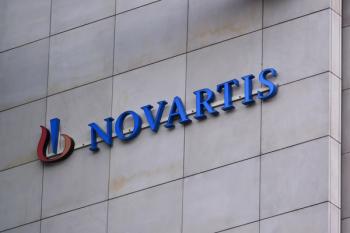
- Pharmaceutical Executive-01-01-2021
- Volume 41
- Issue 1
A New Year for Sustainable Governance
Biopharma sustainability resolutions for a better 2021.
There are many ways that 2021 can be better than 2020, and biopharma will play a critical role making it so.This year will be better if we can extend recent spectacular R&D accomplishments into a successful global deployment of vaccines, diagnostics, and therapeutics to control the pandemic. This year will be better if innovative corporate and public-private collaborations can mature into sustainable business models bolstering our social license to operate. This year will be better if biopharma companies can accelerate implementation of their environmental and social impact goals by integrating them into core business strategy.
As the New Year starts, I hope biopharma executives and board members will resolve to step up their sustainability game as they pursue these objectives, addressing them as an integral part of their value creation strategy. Achieving them will require long-term vision and wide perspective to identify opportunities as well as risks, and to navigate through the chop. What are the governance challenges ahead?
Governance is a foundational requirement for every company.From a biopharma business and investor perspective, high priority sustainability governance topics include the board’s environmental, social, and governance (ESG) oversight process, the process and structure of ESG management and communications, and reflecting ESG performance in executive pay. These priorities are from the Biopharma Investor ESG Communications Guidance, published last April by the Biopharma Sustainability Roundtable (BSRT) after a two-year collaborative development. Diversity and inclusion are also rising priorities for 2021, both within companies, and in trial design, commercial and access programs, and board composition.
Complicating matters, as I’ve discussed here before, there’s a wave of ESG-related regulation and disclosure requirements in development, including near-term efforts to facilitate pandemic response, and longer-term changes to drive the UN sustainable development goals (SDGs). Both will deeply affect biopharma companies, and addressing them demands an active reassessment of older ESG governance models.
The coming year will also put a spotlight on board-level oversight, communications, and accountability for ESG performance. High Meadows Institute, a think tank and policy institute focused on strengthening the role of business leadership in creating a sustainable society, observed recently that “all the leading ESG standards and frameworks reviewed have clear expectations for boards to oversee ESG issues ...,” and “the world’s largest investors expect corporate boards to pay attention to ESG issues and many have issued board-specific guidance ….” This is an important convergence among leading sustainability frameworks and standards—including the Global Reporting Initiative (GRI), World Economic Forum, Task Force on Climate-related Disclosures, Principles for Responsible Investment, and the Sustainability Accounting Standards Board (SASB)—and key biopharma sector investors, including BlackRock, State Street, and Vanguard. If ESG disclosures are streamlined and comparability improved, a company’s ESG score may ultimately become as fundamental as its credit rating.
Convergence of sustainability-related expectations is also driving collaboration and consolidation among framework and standards organizations. Last September, GRI, the International Integrated Reporting Council, SASB, the Carbon Disclosure Project, and the Climate Disclosure Standards Board announced their collaboration on a comprehensive sustainability reporting model to complement the generally accepted accounting principles for financial reporting.
The International Financial Reporting Standards Foundation went further, starting a consultation process aimed at an overarching global Sustainability Standards Board. They hope to simplify the disclosure landscape (eventually), creating a “comprehensive corporate reporting” model going beyond financial and material ESG topics to include significant future positive or negative impacts on people, the environment, and the economy.
In sum, a multilayered sustainability strategy and governance challenge is facing biopharma in the coming year, as we seek to achieve a successful global pandemic response, institutionalize new collaborative business models, and make progress on the UN SDGs. Many companies have started re-examining their ESG strategies and governance processes, and several have recently appointed new ESG leadership as they move towards more comprehensive corporate performance models.
Sandor Schoichet, Director, Meridian Management Consultants, and Co-Founder of the Biopharma Sustainability Roundtable. He can be reached at
Articles in this issue
about 5 years ago
2021 in Focus: Pharm Exec’s Annual Industry Outlookabout 5 years ago
‘Breakthrough’ Balancing Act: The Decline of the Value Propositionabout 5 years ago
Prescriber Hesitancy on COVID Vaccinesabout 5 years ago
More Cloud on the Horizon for Pharmaabout 5 years ago
Bound By Bloodabout 5 years ago
Pharmaceutical Executive, January 2021 Issue (PDF)about 5 years ago
Pharma in Spotlight as Pandemic Continues in 2021about 5 years ago
Six Degrees of 2020about 5 years ago
Why Investing in Tech Education Is Importantabout 5 years ago
Pharm Exec Hits 40Newsletter
Lead with insight with the Pharmaceutical Executive newsletter, featuring strategic analysis, leadership trends, and market intelligence for biopharma decision-makers.




